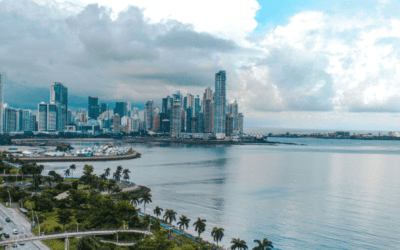Dateline: Budapest, Hungary
I mentioned the other day how Hungary is a case study in poor currency management. The government has taken a beautiful country with a smart workforce and turned away foreign investment thanks to years of hatred for business and banks and decades of poor fiscal management.
In fact, Hungary has the world’s worst recorded example of hyperinflation – worse than modern-day Zimbabwe.
Of course, governments routinely use their own fiscal mistakes as excuses for political posturing. Earlier today, I saw a number of arguments from Americans claiming Barack Obama and his cronies are right to raise the US federal minimum wage from its current level of $7.25 per hour because – wait for it – minimum wage is worth less than it was when it was last raised over a decade ago.
I have to wonder whether those pontificating on the use of further government violence to force business owners to overpay their own workers were in favor of Bill Clinton’s shell game with the Social Security Trust Fund.
Or George W. Bush’s massive wars that cost trillions of dollars.
Or Barack Obama’s failed stimulus plans to appease the Occupy Wall Street crowd.
Rather than putting blame where blame is due – on the government – politicians and anti-business petitioners are more than happy to blame the small business owner for the wage they pay not buying what it used to.
When the Hungarian pengo was experiencing 100% inflation every few hours after World War II, it wasn’t the fault of business owners for not paying their workers enough. It was the fault of the currency. If the Hungarian government hadn’t loaned a bunch of money and gotten stiffed, things wouldn’t have been so bad.
But the government had no discipline.
The truth is, nearly the entire western world is proof that you can’t just set up a business anywhere and expect to prosper. I’ve said for some time that California is the worst place on earth to start a business, but The Land of the Free as a whole is almost as bad.
With fresh demands for huge minimum wage increases in the United States – accompanied with a new wave of anti-business sentiment – I have to wonder why you would choose to do business in the United States if you had a choice.
And as we know around here, you do have a choice.
However, there are still a few safe havens around the world. As an American politician is claiming that the government has “proved communism works”, one European country just shot down a proposed minimum wage law.
Switzerland, which has no minimum wage, rejected a proposal by union activists to impose a $25 per hour minimum wage in the country.
In fact, they defeated it handily – 76% to 24%.
While Switzerland has lost some respect from me for devaluing its high-flying Swiss franc by pegging it to the Euro, you have to respect the Swiss people’s pragmatism on this issue.
While rabble-rousers claimed a Swiss minimum wage would help more than 300,000 retail workers, it’s hard to see exactly how.
For example, there is currently a meme circulating on Facebook lambasting the fact that the CEO of McDonald’s took a $9.7 million pay increase last year. The meme, put out by angry union leaders, suggests if such a company can pay its CEO such a largesse – some $14 million last year – that it surely must be able to afford to pay its hired help $15 an hour.
Simple math shows that this is total nonsense. Not only are most McDonald’s in the USSA owned by franchisees who don’t control the pay of the home office CEO, but the 700,000-strong workforce of McDonald’s would eat up that $9.7 CEO pay raise in a matter of minutes.
No one ever thinks that the CEO who has presided over a great stock with increasing dividends should get rewarded for doing so, or that without him, some of those workers wouldn’t have jobs to begin with.
Of course, the same is true in Switzerland. I was recently talking to one of the top experts in the world on luxury brands. We were discussing Switzerland’s famous “Valley of Fairies” where all of the Swiss watches are handmade.
I couldn’t help but thinking that tighter labor laws from the Swiss government would cause some of those companies to pack up and leave. Sure, it would be hard to bid adieu to Switzerland after centuries of watchmaking tradition, but in today’s cutthroat business world, the companies would have no choice.
In Switzerland, employees already have bargaining groups such as unions to help set pay, often by industry. Why the government is needed to intervene is beyond me.
Perhaps this is why Switzerland is one of the world’s freest economies; certainly more free than the United States.
The world’s second freest economy, Singapore, also has no minimum wage. Yet somehow, Singapore is now the world’s richest country.
Sure, Singapore’s high proportion of millionaires – nearly one in five residents has a million dollars or more – helps tip the scales, but walk through any of Singapore’s “poorer” ethnic neighborhoods and you won’t exactly feel like you’re in a third world country. Far from it.
Singapore’s neighbor Malaysia – one of my favorite countries for living overseas and a “New Safe Haven” – also has no minimum wage. Yet it is ranked as the sixth best country to do business, and business there is booming.
Even socialist countries like Italy don’t have universal minimum wage laws for all industries. For all of the past moaning from American commies about being “the only country in the developed world without free healthcare for all”, these same people love to skip over the fact that some of their favorite bastions of socialism don’t have a minimum wage for all.
Meanwhile, which countries do have high minimum wages? Six countries in all demand that businesses pay workers more than the United States minimum wage.
Taking the cake is Australia at nearly $17 an hour. Australia is where even six-figure income earners can feel poor. We’ve talked for some time about how Australia is only a few years behind the USSA in its slide toward totalitarianism.
Number two is France, where all workers must earn over $12 per hour, regardless of productivity. Need I saw more? This is the country that recently enacted regulations to limit independent contractors from checking their smartphones after the dinner hour.
France is also home to some of the world’s highest taxes. Domingo Silvas talked about cheap real estate opportunities in Paris at our Passport to Freedom conference, but the French government alone would scare me away.
Meanwhile, Canada, the United Kingdom, and Japan – three countries declining at a fast pace – also demand workers be paid higher minimum wages than in the United States.
What can we take from all of this? The world’s highest minimum wages belong to countries no rational person would go to in order to start a business.
The problem is that the average entrepreneur is too uninformed or too lazy to pack up and leave when his or her government insists their business pay unproductive, unmotivated workers just to show up.
Heck, this is the only reason the United States isn’t totally broke: a domestic population of 300 million suckers ready to serve as milk cows for whatever crazy tax scheme their government dreams up next.
Meanwhile, the countries with low or no minimum wage are thriving. Singapore and Switzerland are two examples. My beloved Hong Kong, which caved to pressure to implement a HK$28/hour (US$4) minimum wage several years ago, is also doing well because it didn’t go crazy and demand businesses pay a fortune.
Whether low-income workers deserve more is not the point. Bleeding heart politicians can argue the woes of those who live in tenements or eat only potatoes for three meals a day. In reality, we know that capital goes where it is treated best, and countries that impose steep minimum wages will not succeed in the long run.
Of course, the countries that pull boneheaded stunts like passing $15/hour minimum wages will feel good for about five minutes. That is, until the inflationary effects kick in and the clueless government tries to figure out how to fix the problem… with, no doubt, more bad economic policy.
UPDATE 6/4/14: Seattle just voted to apply The Land of the Free’s highest minimum wage – $15 per hour, up from Washington’s $9.32 minimum. Add it to the list of places not to do business.









